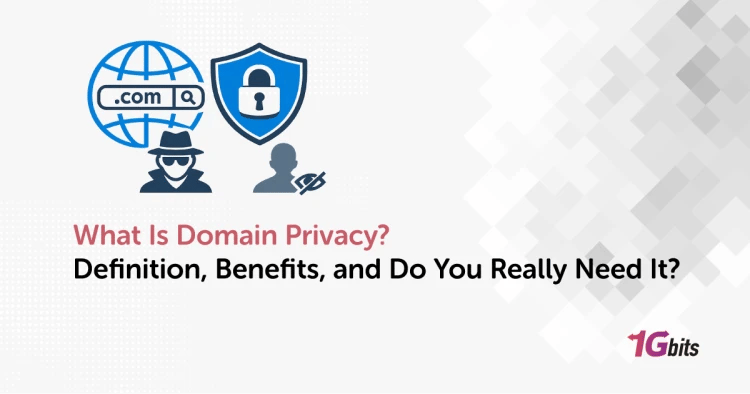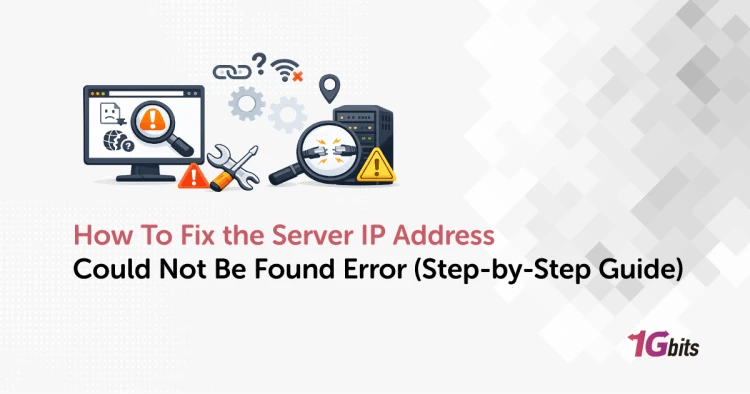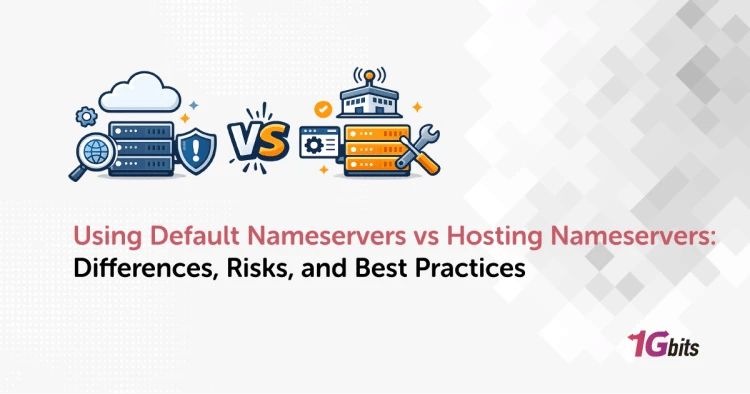For many firms, creating and maintaining capital-intensive IT infrastructure is overwhelming. However, they can rent floor space in a third-party data centre that handles the hardware's power, networking, and cooling. This is what we call colocation.
Any colocation project must start with the creation of a comprehensive roadmap. This is because a typical colocation deal could last three to fifteen years, meaning a lot is on the line.
Dealing with a colocation partner unable to meet your business's specific needs could lead to serious service delivery and user experience losses. Businesses must do extensive research before choosing a colocation provider.
The ten common variables listed below should be considered while selecting the best colocation provider.
Location
Ask yourself why a certain location might be the best one for your company before selecting a colocation site.
A colocation close to the internal IT team is easier to access, and this closeness is essential if prompt repair or disaster recovery is required.
The IT staff may not quickly access remote sites, necessitating outside or remote intervention.
To reduce network latency, businesses also try to locate their IT resources close to their workloads. Colocation data centres built close to populated areas offer significant financial benefits.
In addition, certain places experience natural disasters, like earthquakes, floods, storms, etc., more frequently than others. Data centres in disaster-prone areas are constructed to the greatest structural safety requirements and are outfitted with disaster mitigation tools.
Your company's specific demands should ultimately determine the optimum location for the best colocation provider.
Availability
The proportion of uptime that your colocation provider guarantees is referred to as availability. The percentage of time that the network is fully functional is referred to as uptime.
Top data centres typically strive for uptime of five nines, or 99.999%. However, only a few data centres can reach this level, with the majority maintaining uptimes between 99.6% and 99.9%.
Even during scheduled maintenance, a colocation facility with a high availability factor will keep the IT infrastructure operational. This is crucial for mission-critical systems, such as those in the healthcare, finance, and defence industries, because service outages can lead to large losses in money or other resources.
Your disaster recovery and data backup plan should include a secondary site, regardless of the size of your central organization's infrastructure.
Typically, a colocation facility would serve as this second location. The availability of a backup recovery strategy after a natural disaster will minimize downtime, data loss, and recovery costs.
Power and cooling
The next factor you should consider when choosing a colocation provider is power and cooling.
Any colocation provider you are evaluating should meet the power, cooling, and humidity requirements.
For the most modern cooling system possible, look for a provider that uses cooling strategies like elevated flooring. Additionally, they ought to use real-time air quality monitoring.
In data centres, cooling is a significant cost component that, if done incorrectly, can result in equipment failure. A hot-aisle and cold-aisle configuration or a raised floor cooling architecture are best practices for managing data centre airflow.
The biggest expense in a data centre is often power. So choosing a colocation provider with lower electricity expenses will ultimately result in cheaper costs for you overall.
Power expenses for third-party providers are normally fixed, but for internal operations, they can change.
Reliability
Every data centre facility must have a solid design to function properly. To provide redundancy, look at colocation providers with numerous facilities.
For instance, to guarantee complete uptime for their customers, they would switch to their other facilities if they encountered an outage.
There are several techniques to evaluate the dependability of your potential provider. These include checking the colocation's personnel credentials, client reviews, and on-site support options.
The best colocation provider also adapts to the expanding needs of its clientele. As a result, options for stable scaling are tightly related to reliability.
Ease of deployment
Here, deployment relates to how quickly you want the infrastructure operational. How long can you tolerate being offline before your business locates a new cross-connect or sets up a new rack space?
It makes sense that you'd want to implement any adjustments and deployments as quickly as possible without sacrificing the service's quality.
Measuring the deployment capacity efficiency of your facility can be difficult. The best way to prevent future difficulties is to communicate the timelines.
You will not have your personnel on-site at the colocation facility; therefore, you must have complete faith that the remote team who is there will deliver the best-managed services.
Network connectivity and carrier diversity
Colocation is more than just adding a network connection and racking and storing your equipment in a data centre. Your IT performance would suffer without highly stable and redundant network connectivity.
To guarantee that your company can access the apps and resources it needs, look for a colocation provider that offers a wide variety of connectivity options.
When choosing a colocation provider, make sure it has carrier diversity in all of its data centre facilities, especially if your company is operating apps that need redundant network access to function properly.
Colocation is typically just one aspect of an organization's overall IT strategy. Consider the implications of your complete IT infrastructure on your organization when choosing the best colocation provider.
In addition to colocation services, companies also provide cloud solutions and business continuity services. A colocation provider can provide all these services and can also serve as your IT partner.
Compliance
Verify that any potential colocation provider can assist you in meeting regulatory requirements if your firm is subjected to them.
While maintaining compliance is ultimately your organization's responsibility, many security measures and audits a colocation provider uses can make your job easier.
Give preference to vendors who are subjected to impartial audits by outside parties.
Look for data centres that have undergone SSAE 18-style audits, and make sure you demand to obtain copies of the attestation reports.
Additionally, it shows their dedication to enhancing the security of your critical infrastructure if those same facilities also go through HIPAA and PCI DSS assessments.
A game-changer can be choosing a colocation provider who has the necessary physical security controls and is prepared and eager to assist you during a compliance examination.
Meeting the complex requirements of compliance and security is more challenging than ever, in particular, due to increasing threats, ambiguous regulatory guidance, and constrained resources.
You can improve your resistance to attacks by using professional compliance services which can test, assess, and fix security flaws.
Resiliency
Most colocation service providers offer resources like redundant networking, power backups, and other equipment that enhance the resilience of workloads processing in colocation facilities.
However, some colocation service providers offer more services than others. As an illustration, some may provide disaster recovery services to help clients restore disrupted settings.
Some may even guarantee that their data centres can withstand specific disasters, such as floods and hurricanes.
Compare the guarantees of resilience made by each colocation provider.
Security
The word "security" has a broad definition. It touches on insider threat protection methods that your provider has in place, the physical location of a data centre and the most recent security tools.
The security consists of so many distinct components that it can be confusing to know what to look for and what questions to ask.
If anyone could enter a data centre without going through a security check-in process, that would be a big problem. If a tornado could damage or interfere with a data centre facility, it would be a serious problem.
If a PIN were stolen and used to access restricted areas without authority, this would be a severe problem if there were no additional security mechanisms in place to stop such interaction.
All colocation facilities have security. The different tools, protocols, and security levels of each supplier may set them apart from one another. Here are some things to consider when choosing the best colocation provider:
- Secure physical location: away from a flood plain, away from airport landing lanes, protected by physical barriers, and not vulnerable to natural disasters.
- Secure check-in: using government-issued IDs, key cards, pins, and biometrics to confirm each visitor's identification.
- Secure tools include multi-factor authentication checkpoints in mantraps, badges and keycard access, cabinet combo locks, and video surveillance with archiving periods.
- Training security personnel on duty at the data centre facility around-the-clock, evaluating management controls and internal threat processes, and providing protection.
Service level agreement (SLA)
An SLA (Service-Level Agreement) is a contract between a service provider and a customer that specifies the complete scope of the services the facility expects to offer.
A business's main priority should be reviewing the provider's primary service agreement and SLA.
Your legal and IT teams can be helpful, especially when analyzing mission-critical terms and formality in contracts.
You must speak with your potential provider immediately to negotiate better conditions if a problem emerges. A colocation facility with fixed SLA conditions ought to be removed from consideration.
Conclusion
A modern business's nerve centre is its data centre, which offers the computing, storage, and networking resources required to support the wide range of complex corporate applications that power the company.
In the past, a business built, stocked, and managed its data centre. Even more data centres could be supported by it if they are constructed in important local, regional, or international locations.
However, fully functional data centres are complex, expensive, and resource-constrained buildings. Such a capital-intensive enterprise might not necessarily be one a business can afford to start, maintain, or grow.
Choosing a colocation provider is an alternative to building and running a private data centre.
The advantages of colocation, which include scalability, improved security, increased productivity, and cost savings, cannot be realized unless you select the best colocation provider.
People also read:








